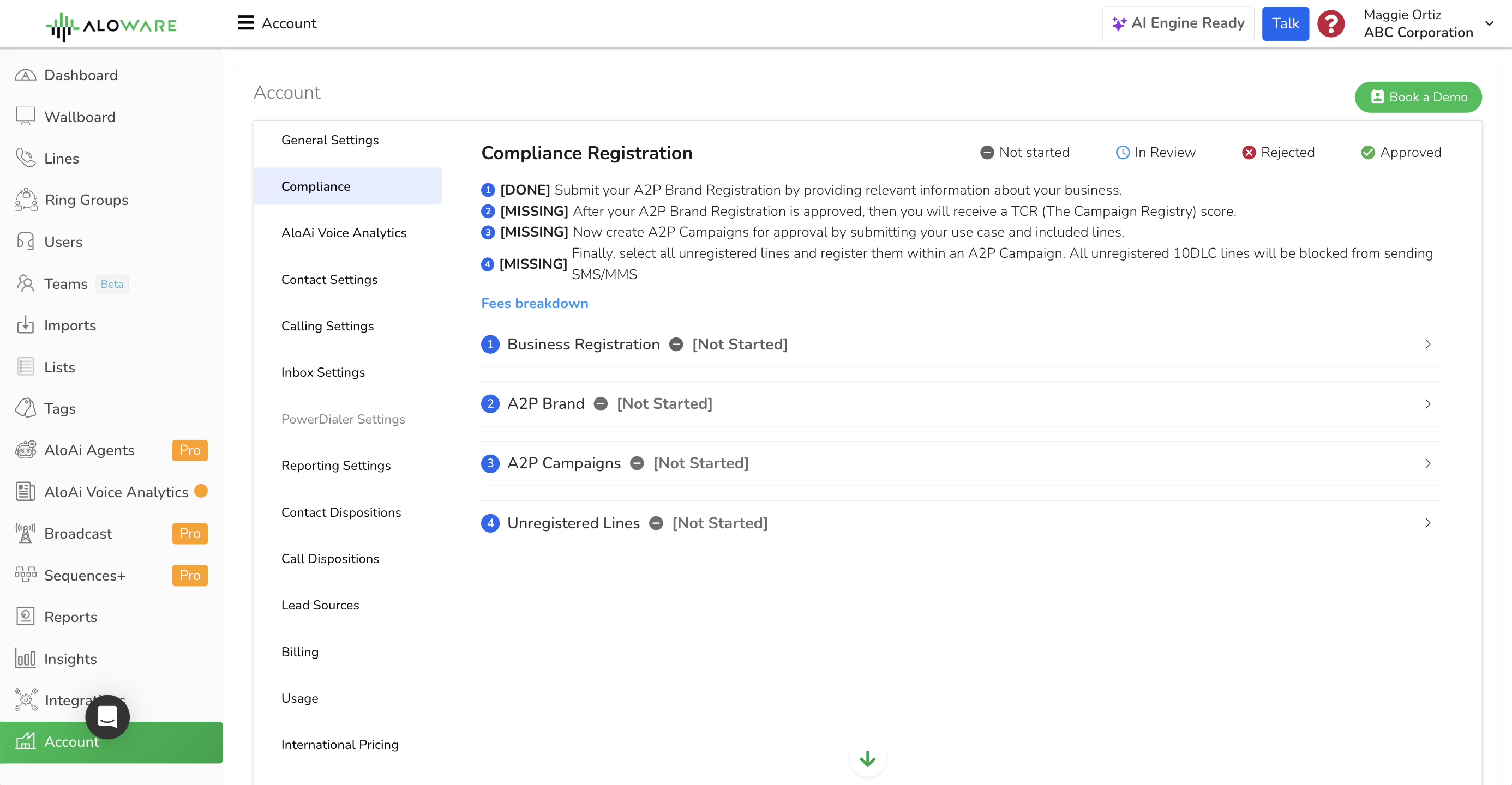In the bustling world of digital communications and marketing, the SMS channel has emerged as a powerful tool for businesses to engage with their customers effectively. However, the path to launching a successful SMS campaign is not without its hurdles, particularly when it comes to registration and compliance. Understanding the intricacies of registration requirements and compliance guidelines is crucial for businesses aiming to harness the full potential of SMS marketing. Let’s delve into the essential steps and considerations for registration and compliance in SMS campaigns.
Registration Essentials
Embarking on the journey of SMS marketing begins with thorough registration. The Campaign Registry serves as a comprehensive guide for businesses, outlining the key components required for registration: Business Profile, Brand, and Campaign.
- Business Profile: Registering with a Business Profile entails providing essential details such as the company’s EIN (Tax ID). A common pitfall in this stage is discrepancies between the registered business name and the name on the EIN form. To mitigate this, ensuring consistency in business names is paramount.

- Brand Registration: This step involves furnishing contact information for the brand. Similar to the Business Profile stage, discrepancies in brand names can lead to rejection. Aligning brand names with the Business Profile and EIN information is imperative for a smooth process.
- Campaign Registration: Providing detailed information about the campaign, including use case type, message samples, and opt-in flow, is essential. Campaign rejection can occur due to various factors, underscoring the importance of meticulous preparation.

Opt-in Requirements
A robust opt-in process is fundamental to compliance and fostering positive customer relationships. Key requirements for opt-in include:
- Active Consent: Users must actively opt-in to receive SMS messages, typically through actions such as checking a checkbox or submitting a form.
- Message Disclosures: Clear disclosure of message types, rates, and frequency is essential to inform users adequately.
- Links to Policies: Providing links to Terms of Service and Privacy Policy ensures transparency and builds trust with users. Privacy policies should explicitly state non-sharing of collected data with marketers.

Message Sample Composition and Compliance
Crafting message samples that adhere to compliance standards is crucial for campaign approval. Key considerations include:
- Sender Identification: Messages must clearly identify the sender, enhancing transparency and credibility. i.e. “This is John from Acme company…”
- Recipient Consent: It should be evident that the recipient has consented to receiving the message, either by addressing them by name or indicating it’s in response to a request for information.
- Opt-out Mechanism: Including opt-out instructions in the first SMS and subsequent messages is mandatory, empowering users with control over their subscriptions. i.e. Reply Stop to opt-out
Handling Rejections and Violations
Despite meticulous planning, rejections and violations may occur. It’s essential to understand the reasons behind rejections and take proactive steps to address them. Appeals and remediation plans play a pivotal role in resolving issues and securing approval for campaigns.
In cases of violation notices, swift action and collaboration with carrier partners are vital to rectify the situation. Understanding error codes and implementing corrective measures are crucial steps toward mitigating errors and ensuring smooth campaign delivery.
Here are some examples:
If the customer experiences SMS errors on numbers that are added to an approved campaign, they will first reach out to the support team.
Error 30034 – Message from an unregistered number – If a number(s) sending SMS returns this error code, the first step is to determine when it was added to the approved campaign. It can take 2-3 business days after adding the number to the campaign for SMS to be sent successfully.
Error 30007 – “Message Delivery – Carrier violation” is a catch all error code where the destination carrier filters the message and does not deliver it. This doesn’t focus on message content alone, but it is a common reason for violation. Please reference this link for other possible causes.

Conclusion
Navigating registration and compliance requirements in SMS campaigns demands diligence, attention to detail, and a commitment to transparency and user consent. By adhering to registration protocols, compliance guidelines, and best practices, businesses can unlock the full potential of SMS marketing, fostering meaningful connections with their audience while staying compliant with regulatory standards. Embracing these principles sets the stage for successful SMS campaigns that resonate with users and drive tangible results in the ever-evolving landscape of digital marketing.





